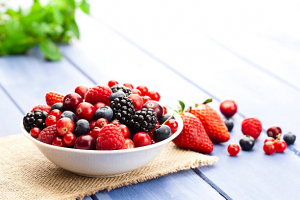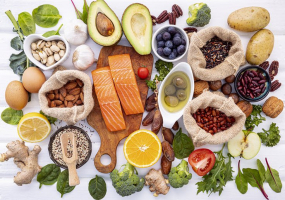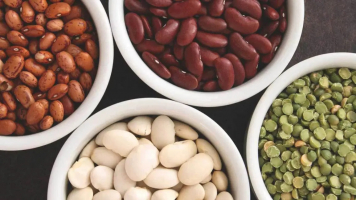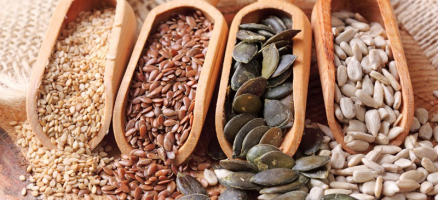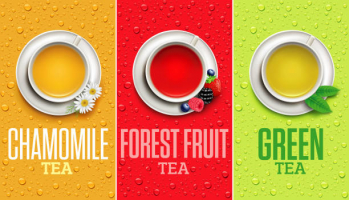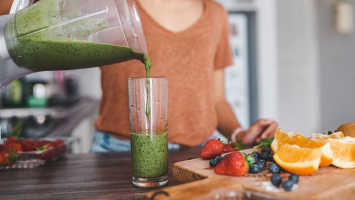Top 10 Healthiest Fruits You Should Eat More
Fruits are high in fiber and are a good source of important vitamins and minerals. Fruits also include a variety of health-promoting antioxidants, such as ... read more...flavonoids. Increasing your fruit intake is a great way to improve your overall health and lower your disease risk. Below are some of the Healthiest Fruits You Should Eat More!
-
Lemons are a citrus fruit with numerous health benefits that are often used in traditional remedies. They contain vitamin C and other antioxidants, much as other citrus fruits. Human health requires the use of antioxidants. These compounds scavenger free radicals in the body, which may damage cells and lead to diseases like cancer.
Lemon and other citrus fruits contain flavonoids, which are thought to have antibacterial, anticancer, and anti-diabetic properties. Lemons and other citrus fruits contain phytochemicals, which are beneficial to one's health. These include vitamin C, folic acid, potassium and pectin. Thiamin, riboflavin, niacin, vitamin B-6, folate, and vitamin A are all found in lemons. Lemon juice can be used to flavor water or poured over a salad or fish. To relieve a sore throat, combine lemon juice and a spoonful of honey in boiling water.
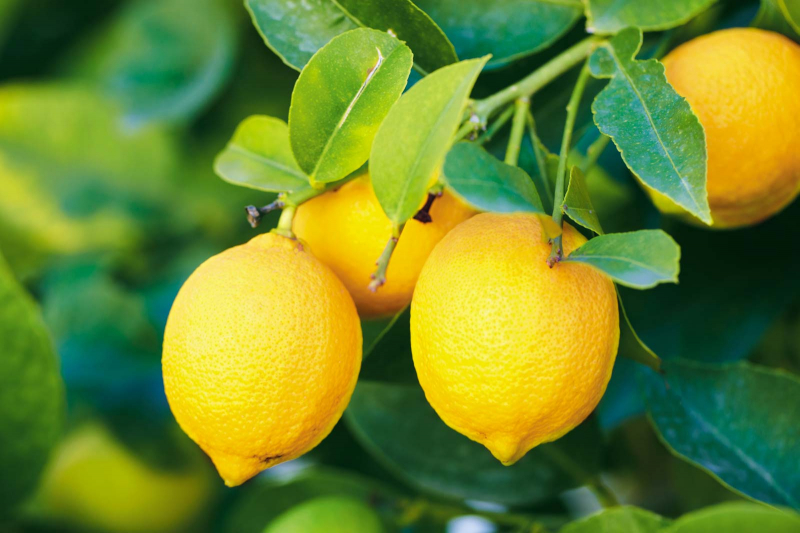
Lemons 
Lemons -
Strawberries are juicy, red berry that contains a lot of water. The seeds contain lots of nutritional fiber per serving. Strawberries are high in vitamins and minerals that are good for your health.
They're especially high in anthocyanins, which are flavonoids that can help improve heart health. Strawberries' fiber and potassium can help to keep your heart healthy. Women who ate 3 or more servings of strawberries and blueberries per week, both known for their high anthocyanin content, had a decreased risk of heart attack than those who ate less, according to one study. Quercetin is a flavonoid found in strawberries and other colorful berries. This is an anti-inflammatory compound found naturally. Strawberries are a fruit that may be used in a variety of ways. They may be eaten raw, added to breakfast cereals or yogurt, mixed into a smoothie, or made into jam.

Strawberries 
Strawberries -
Oranges are vitamin and mineral-rich citrus fruit with a sweet, round shape. Oranges are one of the best sources of vitamin C, with one medium orange providing 117% of a person's daily vitamin C requirement.
The following nutrients are also found in a 141g orange: 65 calories; 16.27 g carbohydrate; 3.4 g of fiber; 61 mg of calcium; 14 mg of magnesium; 238 mg of potassium and 63.5 mg of vitamin C. Vitamin C is a potent antioxidant in the human body. This vitamin is also required for the proper functioning of the immune system. It helps the body absorb iron from plant-based diets, which improves immune function. Because the human body cannot produce vitamin C, humans must obtain it from their diet. Oranges are also strong in pectin, a fiber that helps to maintain the colon healthy by binding to chemicals that can cause cancer and removing them from the colon.
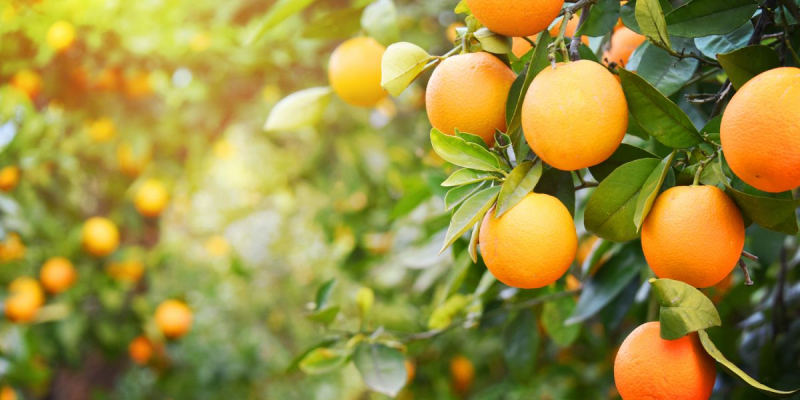
Oranges 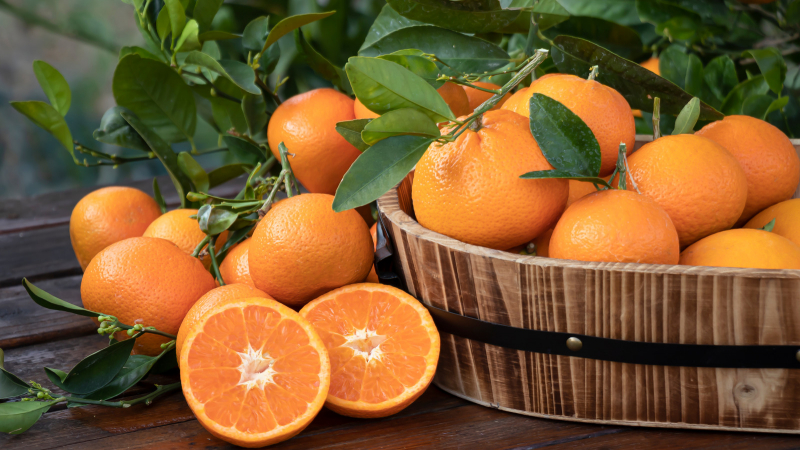
Oranges -
Grapefruits are sour fruits that are high in vitamins and minerals that promote good health. Grapefruits come in a variety of colors, including pink, red, and white.
The following nutrients may be found in half a grapefruit: 52 calories; 13.11 g carbohydrate; 2.0 g fiber; 27 g calcium; 11 g magnesium; 166 g potassium and 38.4 g vitamin C. Grapefruit flavonoids may help protect against cancer, inflammation, and obesity. According to one review of research, grapefruit compounds called furanocoumarins can help protect against oxidative stress and tumors, as well as maintain healthy bones. Grapefruit furanocoumarins may have anti-cancer properties, according to this review, and may be especially beneficial against breast cancer, skin cancer, and leukemia.
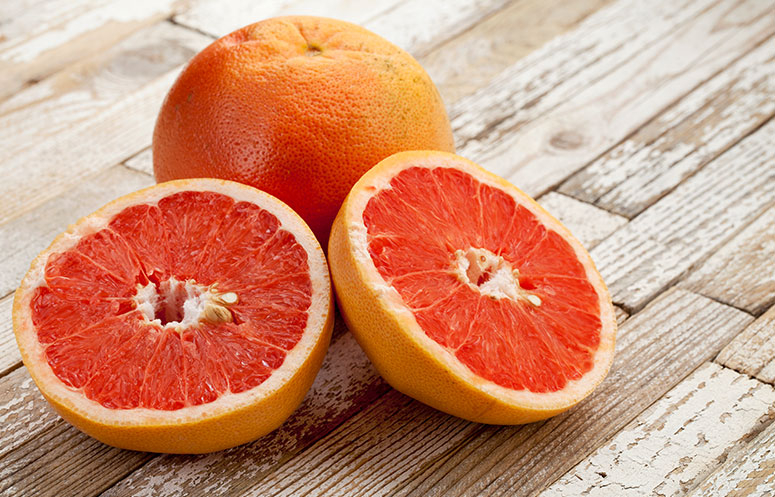
Grapefruit 
Grapefruit -
Blackberries, like other berries, contain health-promoting anthocyanins. Because blackberries have a lot of seeds, they have a lot of fiber. As a result, they may be able to help in the improvement of gut and heart health.
Blackberries have a high vitamin C content. One serving of 100 grams (g) contains 35% of the recommended daily intake (RDA) for an individual. Blackberries provide 14% of the RDA of fiber in a 100 g serving. Fiber is essential for controlling blood sugar levels and sugar intake. Antioxidants such as anthocyanins are also abundant in blackberries. Antioxidants help people in fighting the bad impacts of free radicals in the body. Fresh blackberries may be eaten raw, added to yogurt for breakfast or dessert, or frozen blackberries can be used in smoothies.
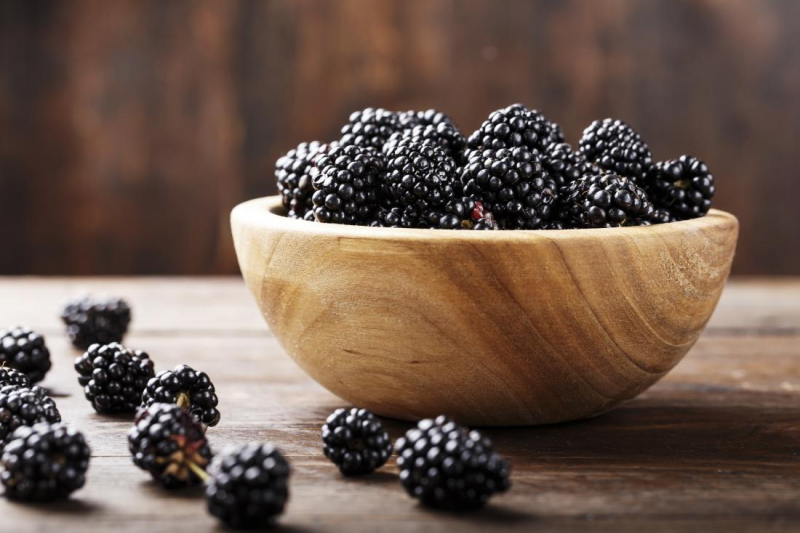
Blackberries 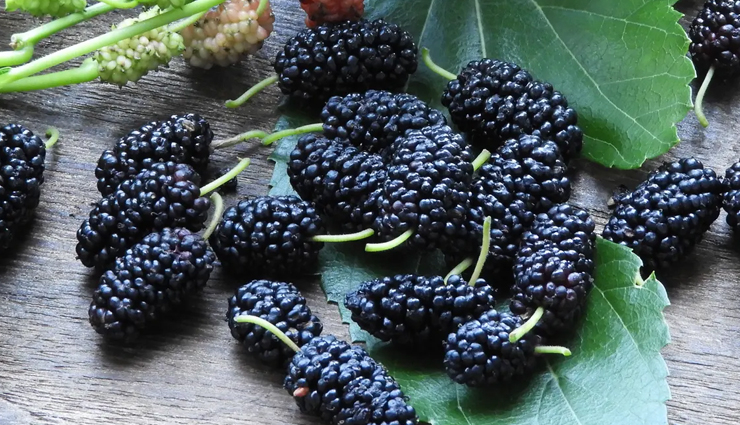
Blackberries -
Apples are a simple and easy way to add variety to your diet. To get the most health benefits, eat them with the skin on. Apples are high-fiber fruits, which means that eating them can help you lose weight and improve your heart health.
Apples include pectin, which helps with gut health. According to studies, eating apples on a daily basis reduces the risk of cardiovascular disease, some cancers, and diabetes. Apples are also high in quercetin, a flavonoid that may have cancer-fighting properties. According to one study, people who ate whole apples were 30% less likely to be obese than those who did not. Diabetes and heart disease risk may be reduced as a result of this.
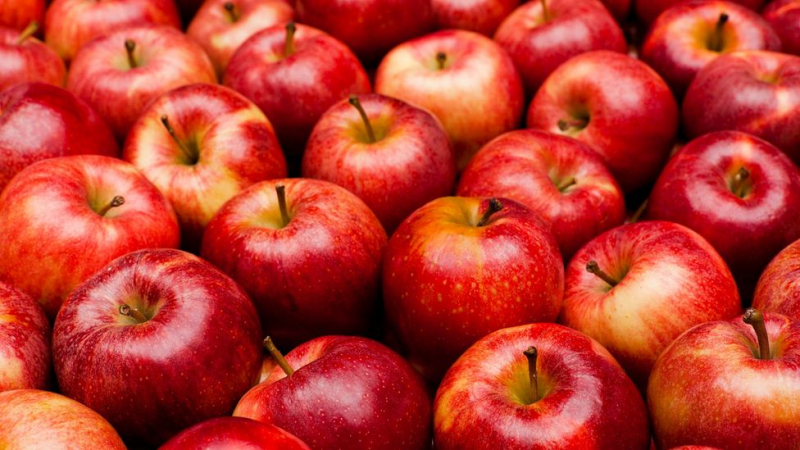
Apples 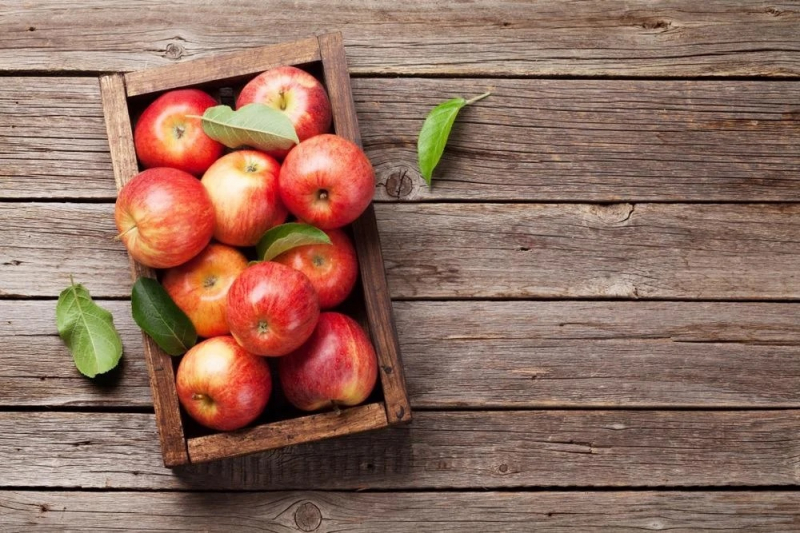
Apples -
Pomegranates are often regarded as a "superfood". They are abundant in antioxidants and polyphenols, which help in the fight against oxidative stress, which can lead to disease. To receive the fiber benefits, eat pomegranates with the seeds.
One pomegranate also includes 46.2 micrograms (mcg) of vitamin K, which is part of the recommended daily requirement of 80 mcg. This vitamin is necessary for healthy blood cells and strong bones. According to one comprehensive research on the health benefits of pomegranates, they contain anti-inflammatory properties and may help protect against brain diseases like Alzheimer's and Parkinson's. This might be due to the high levels of polyphenols found in pomegranates. Pomegranates may also inhibit the development of human prostate cancer cells, according to the research discussed in this review.
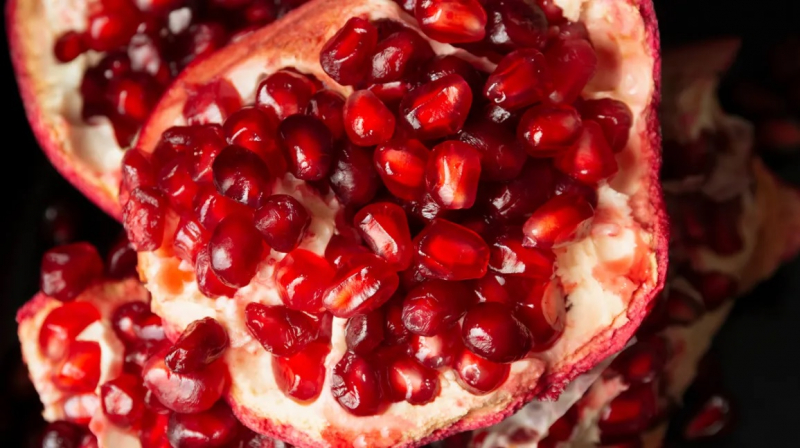
Pomegranate 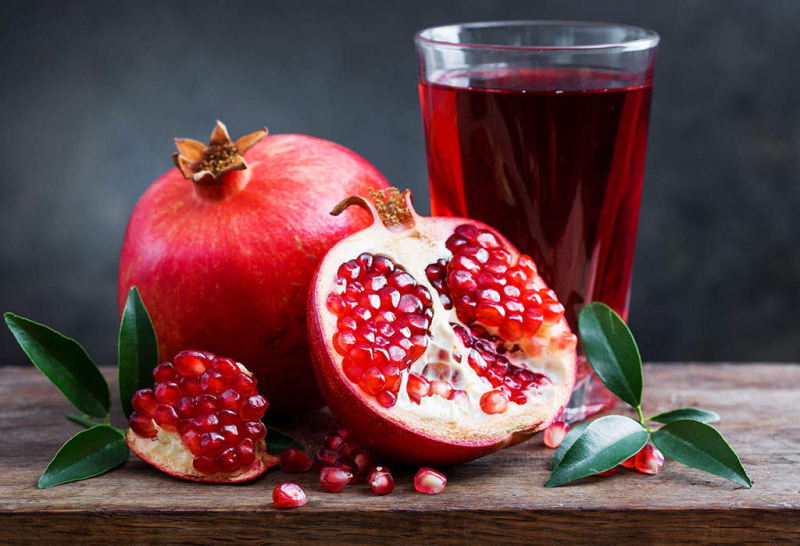
Pomegranate -
Pineapple is a tropical fruit that has been shown to decrease inflammation and promote tissue growth. Pineapple includes bromelain, an active compound with potential health benefits that many people use as a dietary supplement.
According to the National Center for Complementary and Integrative Health, bromelain can help with nasal inflammation and sinusitis. However, additional study into its advantages for osteoarthritis and its anti-cancer potential is required. Manganese is found in pineapples and is used by the body to build bone and tissue. Fresh pineapple is delicious on its own or in fruit salads. Pineapple may also be used to make a tropical salsa or a topping for fish tacos. Frozen pineapple may be used for smoothies.
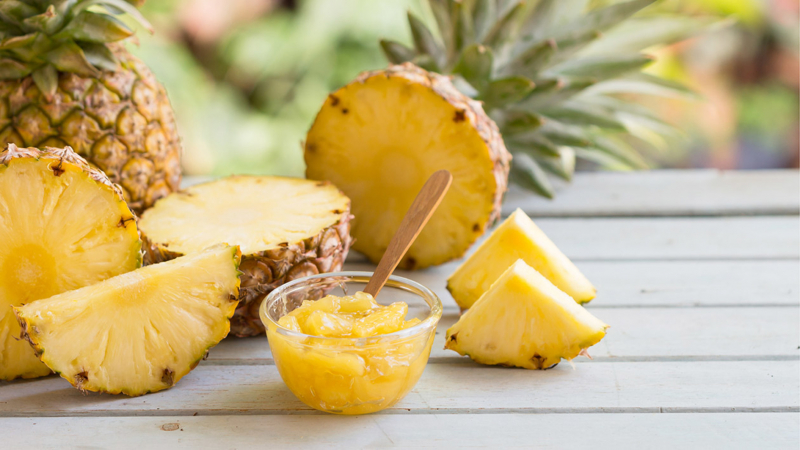
Pineapple 
Pineapple -
Bananas are one of the most widely consumed fruits on the planet. They are high in essential nutrients that can help to protect your health.
The high potassium content of bananas is widely recognized. A medium banana contains 422 mg of the recommended adult potassium intake of 4,500 mg. Potassium helps in the control of heart rate and blood pressure in the body. Bananas are also a strong source of energy, containing 105 calories and 26.95 grams of carbohydrate in one banana. A regular banana's 3.1 g of fiber can also help with regular bowel motions and stomach issues including ulcers and colitis. A banana is a great fruit for thickening a smoothie. They may also be used as a natural sweetener in baking, or to make banana bread or pancakes.
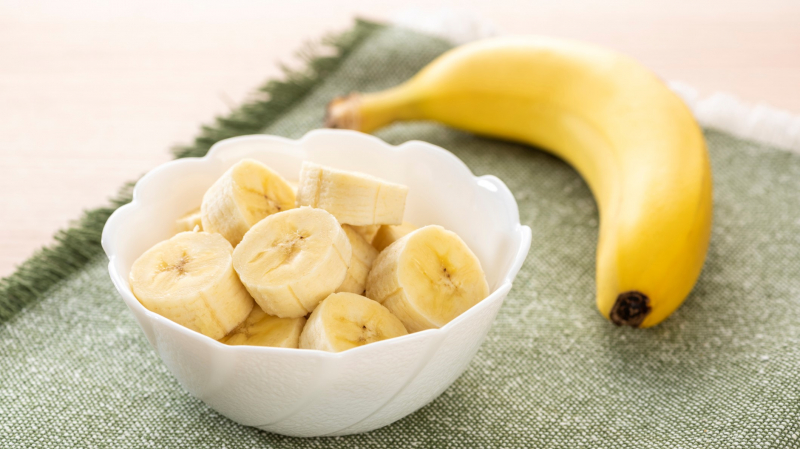
Bananas 
Bananas -
Avocados have become a kitchen staple in many homes throughout the world because they are nutritious, versatile, and delicious. Avocados are high in a number of essential elements, many of which are lacking in todays modern diets. They're high in minerals like magnesium, B6, vitamin C, vitamin E, and folate, which are commonly low in many people's diets.
Half an avocado, for example, has 10% of the daily need for potassium. The US Department of Health and Human Services considers potassium to be a "nutrient of public health concern". This is due to the fact that it is a mineral that most Americans do not get enough of. Avocados are also high in vitamins C, B6, and E, all of which are important for immune system health. B6, a vitamin that helps suppress inflammation and protect against oxidative damage, is found in half of an avocado, which provides 30% of your daily needs. Inadequate B6 intake may cause havoc on your immune system and make you more prone to illness.
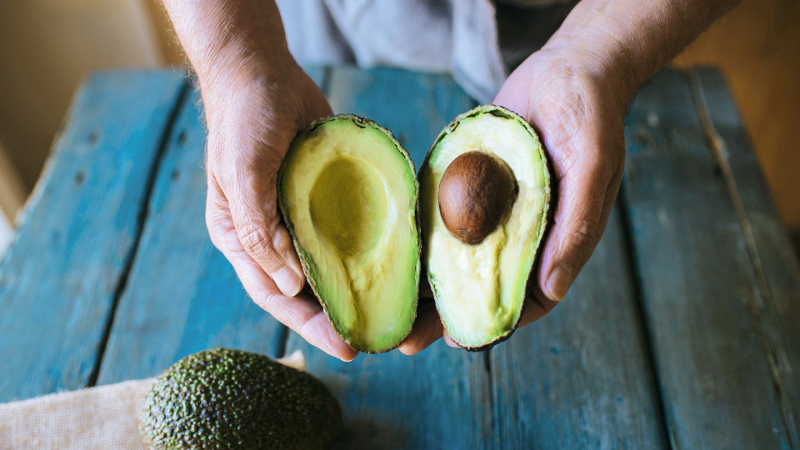
Avocados 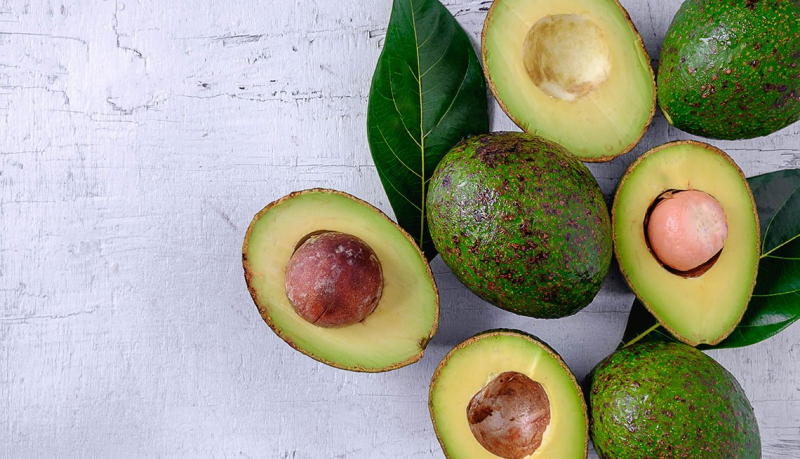
Avocados












